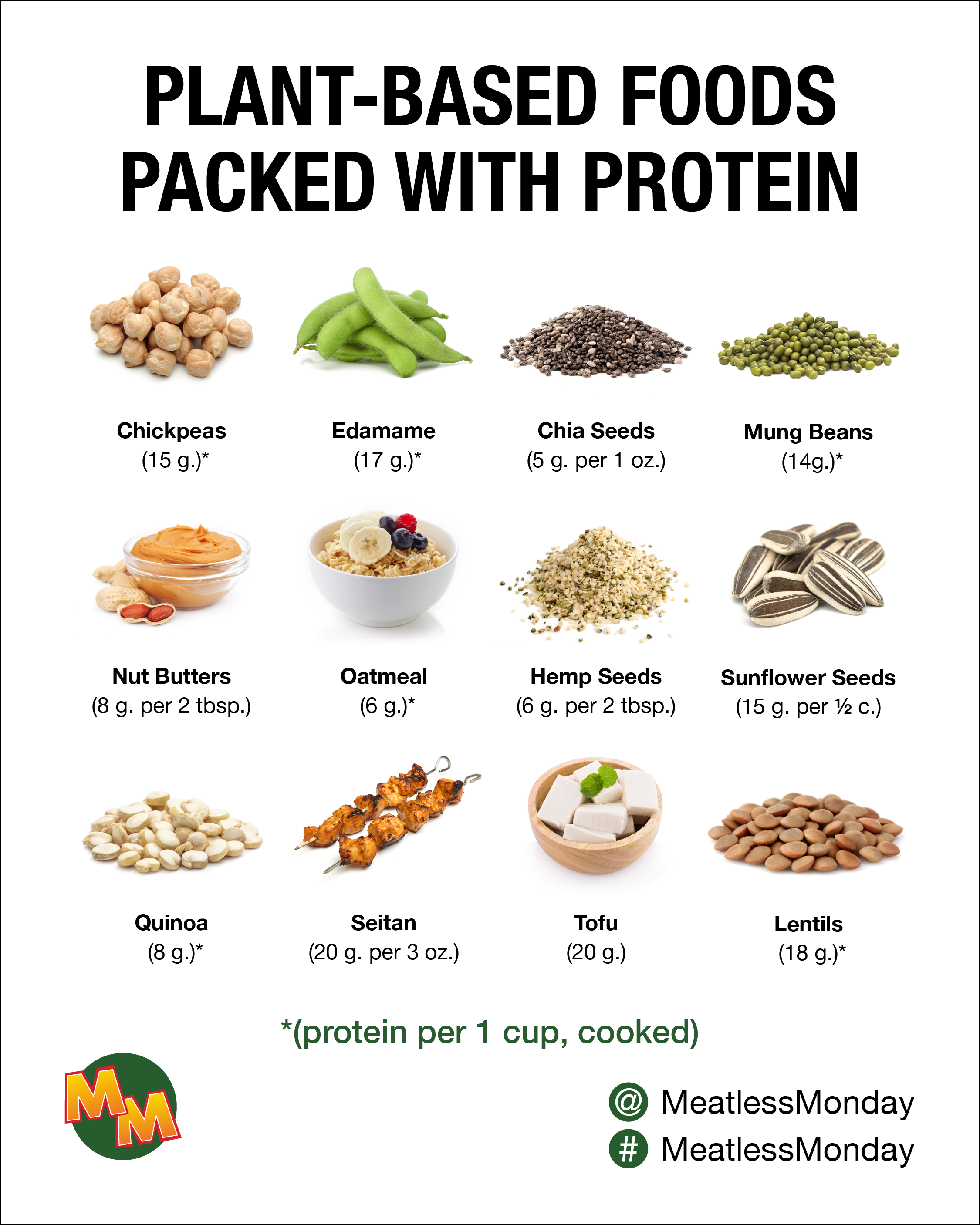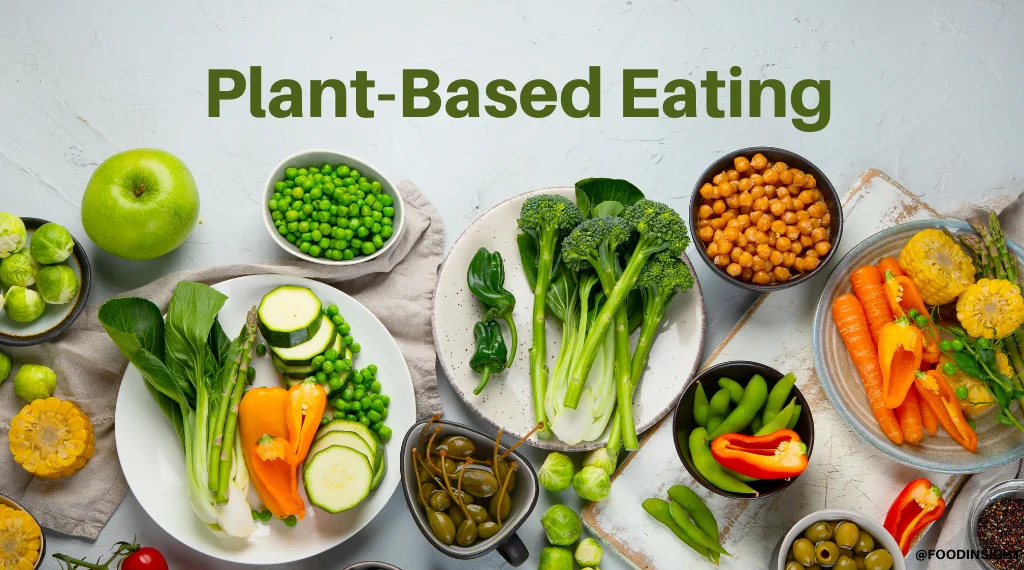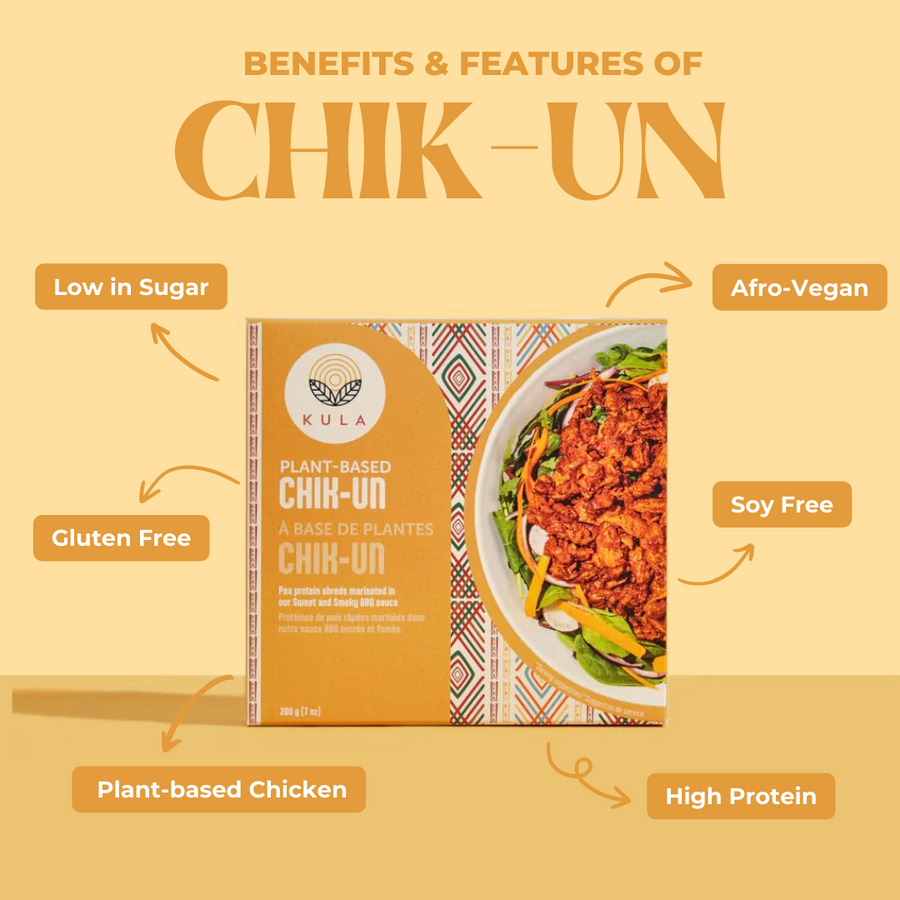10 Surprising Health Benefits of Swapping Meat for Plant Based Chicken
10 Surprising Health Benefits of Swapping Meat for Plant Based Chicken
Blog Article
Everything About Healthy Food: Benefits of Embracing Plant Based Options
The discussion bordering plant-based diet plans has actually acquired significant focus in recent years. Lots of individuals are checking out the prospective health benefits, dietary advantages, and environmental influences connected with these nutritional choices. As individuals become more knowledgeable about their food's impact on wellness and sustainability, concerns occur about the practicalities of adopting such a way of living. What specific adjustments can one anticipate, and just how might these choices reshape not just individual wellness but also the earth's future?
Recognizing Plant-Based Diets
Numerous individuals link plant-based diets primarily with vegetarianism or veganism, these diet plans can include a large range of consuming patterns that focus on entire, minimally refined plant foods. Such diets typically consist of fruits, vegetables, entire grains, beans, seeds, and nuts, while limiting or getting rid of pet products. This flexibility allows individuals to tailor their dietary options according to dietary requirements and personal choices. Some may take on a primarily plant-based diet plan while still occasionally consuming meat or milk, frequently referred to as a flexitarian approach. The focus remains on incorporating even more plant foods, which can lead to a diverse range of flavors and meals. Comprehending these numerous interpretations of plant-based consuming is vital for valuing its availability and charm in modern food society.
Wellness Benefits of Plant-Based Foods
The health benefits of plant-based foods are considerable, offering a nutrient density benefit that sustains overall wellness. Study suggests that these foods can improve heart wellness and play an important function in efficient weight management. By incorporating more plant-based alternatives, individuals might improve their nutritional options and promote long-lasting health and wellness.
Nutrient Thickness Benefit
Nutrient thickness plays an essential duty in the health and wellness benefits of plant-based foods, making them a compelling choice for those looking for a balanced diet. Plant-based foods, such as fruits, vegetables, beans, nuts, and entire grains, are typically abundant in essential vitamins, minerals, and antioxidants while being reduced in calories. This high nutrient thickness enables individuals to eat fewer calories while still satisfying their dietary requirements. Additionally, these foods are packed with dietary fiber, promoting digestive system health and aiding in weight management. By including nutrient-dense plant-based options, consumers can boost their total health, sustain their immune systems, and reduce the danger of persistent illness. Inevitably, the nutrient thickness of plant-based foods emphasizes their importance in a health-conscious lifestyle.
Heart Health And Wellness Improvement

Weight Monitoring Assistance
In enhancement to promoting heart health and wellness, a plant-based diet plan can considerably assist in weight management. This nutritional technique highlights entire foods such as fruits, vegetables, legumes, nuts, and entire grains, which are generally reduced in calories and greater in fiber contrasted to animal-based products. The high fiber web content helps boost satiation, minimizing overall calorie consumption. Furthermore, plant-based diet plans are commonly abundant in necessary nutrients while low in unhealthy fats, making it much easier to preserve a healthy weight. Sugar Free Sauces. Study indicates that people that take on a plant-based way of living have a tendency to have reduced body mass indexes (BMIs) and experience more successful weight reduction contrasted to those that eat meat-heavy diet regimens. Subsequently, welcoming plant-based alternatives is a tactical option for effective weight administration
Nutritional Worth of Plant-Based Active Ingredients
Plant-based components are rich in necessary nutrients, providing a diverse range of vitamins, minerals, and anti-oxidants that add to overall wellness. A comparison of protein resources reveals that while pet products are frequently considered as superior, many plant-based alternatives supply adequate protein and various other useful compounds. Comprehending the nutritional value of these active ingredients can assist people make notified dietary choices.
Crucial Nutrients in Plants
Nutrient-rich components located in plants offer a diverse array of vital minerals and vitamins that add significantly to total health and wellness. These components are abundant in vitamins A, C, and K, which support immune feature, vision, and blood clot, specifically. Additionally, plants supply important minerals such as magnesium, potassium, and calcium, essential for heart health, muscle feature, and bone strength. The visibility of fiber in plant-based foods aids digestion and advertises a healthy intestine microbiome. Anti-oxidants, found abundantly in vegetables and fruits, aid combat oxidative tension and reduce swelling. Furthermore, lots of plant foods are low in calories yet high in nutrients, making them read more a superb choice for those looking for to preserve a healthy weight while ensuring suitable nutrient consumption.
Contrasting Protein Sources
Healthy protein resources vary substantially in their dietary accounts, with plant-based components providing one-of-a-kind advantages. Unlike pet proteins, which commonly include saturated fats and cholesterol, plant proteins tend to be reduced in these harmful components. Legumes, nuts, seeds, and whole grains are rich in vital amino acids, fiber, vitamins, and minerals. Lentils provide high protein content alongside substantial iron and folate, while quinoa is a full protein, supplying all 9 necessary amino acids. Additionally, plant-based healthy proteins are usually come with by antioxidants and phytochemicals that sustain general wellness. The shift to plant-based healthy protein sources not just boosts dietary intake yet also aligns with sustainable nutritional methods, lowering environmental impact and promoting lasting health advantages.
Ecological Influence of Plant-Based Eating
As recognition of climate change expands, lots of individuals are discovering sustainable nutritional options that can considerably reduce their ecological footprint. Plant-based eating has arised as a substantial contributor to reducing greenhouse gas exhausts, which are largely associated with livestock manufacturing. The growing of fruits, beans, grains, and vegetables typically requires fewer resources, such as water and land, contrasted to a knockout post animal farming. Furthermore, plant-based diets can bring about lowered deforestation, as less land is required for grazing animals or growing pet feed. By shifting in the direction of plant-based options, customers can support biodiversity and advertise much healthier environments. On the whole, embracing plant-based eating not just advantages personal health and wellness but additionally represents an important action toward click here to read ecological sustainability and preservation efforts.
Conquering Common Misconceptions
While numerous people acknowledge the benefits of a plant-based diet plan, a number of mistaken beliefs usually deter them from completely accepting this way of living. An usual idea is that plant-based diet plans do not have enough healthy protein; nevertheless, various plant sources, such as beans, nuts, and tofu, provide ample protein. Additionally, some think that this diet regimen is expensive, when in reality, staples like beans, rice, and seasonal vegetables can be quite inexpensive. Another false impression is that plant-based consuming is excessively limiting, whereas it really provides a varied array of tastes and foods. Numerous stress that a plant-based diet may lead to deficiencies, yet with proper preparation, people can obtain all necessary nutrients, including minerals and vitamins, while delighting in a broad range of tasty dishes. Large Tips for Transitioning to a Plant-Based Lifestyle
Making the shift to a plant-based lifestyle can be an enhancing experience, though it commonly needs some support to browse the initial adjustments. Individuals are motivated to begin gradually, integrating more fruits, vegetables, vegetables, and entire grains right into their meals while reducing meat and dairy products intake. Meal planning is necessary; preparing a weekly menu can aid ease the change and stop final unhealthy options. Checking out cooking methods and brand-new dishes can additionally maintain and boost the experience excitement about plant-based eating. Furthermore, signing up with support groups or communities can provide motivation and share valuable ideas. Staying informed concerning nourishment warranties well balanced dishes, stopping deficiencies while fostering a healthy, enjoyable plant-based way of living.

Delicious Plant-Based Dish Ideas
Checking out scrumptious plant-based meal concepts can motivate individuals to accept a much more nourishing diet. One prominent alternative is a passionate quinoa salad, featuring cherry tomatoes, cucumber, and a spicy lemon-tahini clothing. Another favorite is a tasty lentil stew, packed with carrots, celery, and aromatic natural herbs, perfect for a reassuring dinner. For morning meal, over night oats made with almond milk, chia seeds, and covered with fresh berries provide a nutritious begin to the day. In addition, a lively veggie stir-fry with tofu and a variety of colorful veggies can be a quick yet satisfying dish. Velvety avocado salute on whole-grain bread, sprayed with spices and seeds, provides an easy yet savory snack. These meals showcase the variety and splendor of plant-based consuming.

Regularly Asked Questions
Can a Plant-Based Diet Regimen Supply Enough Healthy Protein?
The concern of whether a plant-based diet can provide adequate protein is usual. Countless resources, including vegetables, nuts, seeds, and whole grains, can fulfill healthy protein needs properly, supporting a well balanced and healthy diet for people.
Are Plant-Based Diet Regimens Appropriate for Children?
The suitability of plant-based diet regimens for kids depends on cautious planning. Appropriate nutrients must be ensured, including vitamins, proteins, and minerals. With appropriate advice, such diet regimens can sustain healthy and balanced growth and growth in children.
How Do I Eat in restaurants on a Plant-Based Diet regimen?
Dining out on a plant-based diet involves seeking restaurants with diverse food selections, requesting for modifications, and checking out vegan-friendly choices. Preparation in advance and communicating nutritional preferences can boost the dining experience while preserving nutritional selections.
What Prevail Irritants in Plant-Based Foods?
Typical irritants in plant-based foods include soy, gluten, nuts, and seeds - BBQ Sauces. Individuals adhering to a plant-based diet should be conscious of these irritants and review labels thoroughly to avoid negative reactions and ensure safe consumption
Can Plant-Based Diets Assist With Weight Management?
Research study shows that embracing a plant-based diet plan might assist in weight loss due to its usually lower calorie density and higher fiber web content. This mix can improve satiation, helping people manage their calorie intake successfully. Numerous individuals connect plant-based diet plans mainly with vegetarianism or veganism, these diet plans can incorporate a large variety of eating patterns that prioritize whole, minimally refined plant foods. Nutrient density plays a necessary role in the health and wellness benefits of plant-based foods, making them an engaging choice for those seeking a well balanced diet. Plant-based diets have been shown to considerably boost heart health, as they commonly have elements that sustain cardio feature. In enhancement to promoting heart health, a plant-based diet regimen can significantly help in weight administration. An usual idea is that plant-based diet plans do not have adequate healthy protein; however, numerous plant resources, such as beans, nuts, and tofu, offer adequate healthy protein.
Report this page